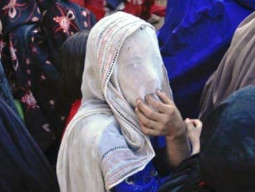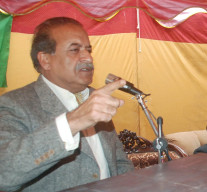
During a recent trip to Peshawar and adjoining areas, I had the opportunity to learn about the tribal form of governance from tribal leaders and locals. Evolved over centuries, this unique system represents the cultural norms of the tribes that inhabit Fata. The idea of taking collective responsibility for the actions of a family or a sub-tribe, protecting the honour of one’s family, and seeking justice through arbitration by jirga are amongst some of the core elements of this system. Rendered ineffective due to the nature of the conflict in the region, locals continue to yearn for this system, for not only did it represent their traditions, it also provided stability in the region.
There will be some who would argue that these traditions have many archaic and even draconian elements to it and that Fata must be brought into the mainstream. Such a belief is rooted in a lack of understanding of the local context and a sense of cultural superiority that justifies the imposition of norms and practices considered foreign by local citizens. Locals argue that while there is room for change in some of these traditional practices, the reform should not be forced upon them but should occur through a process of local debate. A key point that many raised during discussions I held with them was that why should they accept a system of governance that is not only foreign for them, but one that has largely failed in the core of the country? Bribery, nepotism and a lack of interest dominate the mainstream institutional processes in Pakistan today.
Evidence of the effectiveness of this system in bringing stability to Fata lies in the recent process of reconciliation, where a militant group in Khyber Agency decided to renounce violence. The agreement came about through a long process of discussion conducted by a jirga and it was this process that gave a way for the tribal leadership to initiate a process of reconciliation with militants. The TTP have over the years recognised how effective these local processes of conflict-resolution can be, which is why they have targeted jirgas and tribal elders time and time again.
Local tribes, with thousands of men who are unemployed, also provide a willing and able supply of manpower that can help police these agencies. Men in tribal areas grow up learning how to use small weapons and are effective fighters. Furthermore, they possess knowledge of local geography and culture that can be an asset in maintaining security. While the Pakistan Army can do a good job at dominating space in the tribal agencies to flush out militants, it is not its job to hold and maintain security within the agencies. Given our precarious economic conditions, keeping such a large military presence in the tribal areas after they have been cleared of militant presence is not a sound proposition.
For years, the local communities that inhabit the tribal areas have been passive stakeholders in this conflict. While some have taken up arms against the state, the vast majority are patriotic Pakistanis who want to play a role in helping bring peace back to Pakistan. While our armed forces can continue to flush out militants from their hideouts, only the local citizens can provide sustainable peace to the region. Achieving this stability requires implementing a system of governance that resonates with the local tribes.
Published in The Express Tribune, February 9th, 2015.
Like Opinion & Editorial on Facebook, follow @ETOpEd on Twitter to receive all updates on all our daily pieces.





















1714119118-0/image-(7)1714119118-0-270x192.webp)









1714024018-0/ModiLara-(1)1714024018-0-270x192.webp)









COMMENTS (9)
Comments are moderated and generally will be posted if they are on-topic and not abusive.
For more information, please see our Comments FAQ